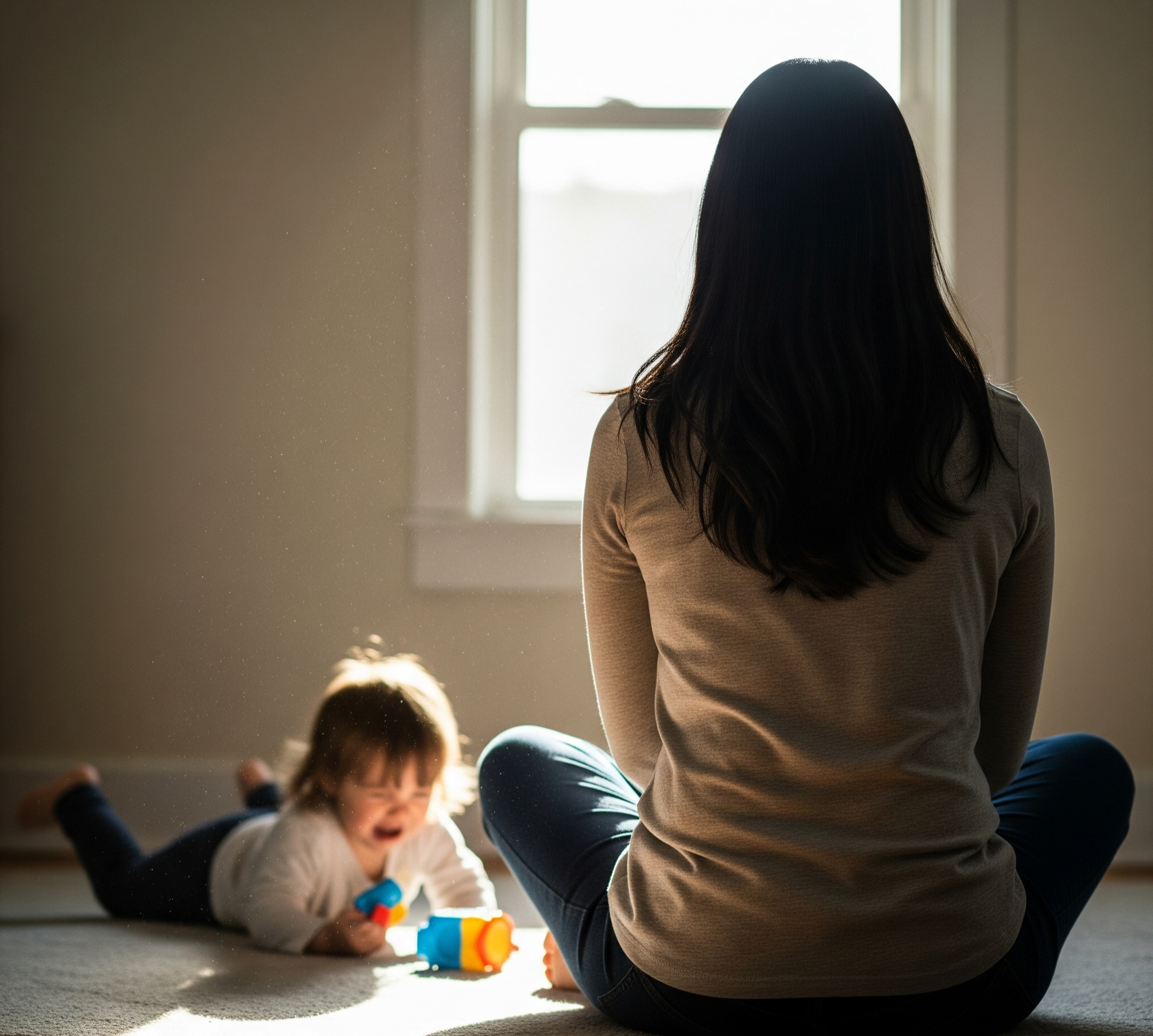Why Your Child’s Big Feelings Can Feel Like an Attack: A Guide for Moms
Understanding Why Big Emotions Feel Overwhelming
If your child’s meltdown makes your chest tighten, your heart race, or leaves you wanting to yell or hide, you’re not a “bad mom.” Your nervous system is doing exactly what it’s meant to do—protect you. Despite how awful it may feel.
Many moms notice that their child’s big feelings feel almost too big to handle. That feeling often isn’t about your child—it’s about your own inner system reacting. Learning to notice this can be the first step toward responding from a calmer, more regulated place.
How Your Inner Working Model Shapes Your Reactions
Your inner working model is the blueprint you carry from early relationships. It shapes how you respond to your child’s emotions.
If, as a child, you were told to “knock it off” when you cried, sent away to manage your feelings alone, called “too much,” or had adults around you who couldn’t handle emotions themselves, your nervous system may have learned that big emotions aren’t safe.
So when your child expresses strong feelings, your body might interpret it as a threat—even though your child just needs support. Understanding this pattern helps you respond with awareness and compassion.
Why Moms Can Become Dysregulated During Meltdowns
Big feelings can overwhelm any parent, and there are often multiple layers behind the intensity:
Old patterns resurfacing: Your inner child may still carry memories of emotional neglect or dismissal.
Learned emotion suppression: If you weren’t supported in your own feelings growing up, your system may struggle to tolerate big emotions.
Exhaustion and overstimulation: Parenting is draining, and constant stimulation can trigger fight-or-flight responses.
Simple nervous system overload: Sometimes it’s not about the past at all—your system is just doing too much at once.
Recognizing these factors helps you respond with compassion for yourself, rather than judgment.
Supporting Your Child While Caring for Your Inner Self
The work we do to support our children is often the same work our inner child still needs. When you pause, regulate, and remind yourself, “I am safe, even if it doesn’t feel safe,” you’re helping your child and giving your younger self the care and validation she needed.
For Moms-to-Be or Those Preparing for Parenthood
If you’re not yet a parent, it’s natural to wonder how your past might show up in your parenting. Awareness and self-reflection now can create a head start—helping you develop the skills to respond with calm, connection, and confidence when the time comes.
Practical Ways to Find Calm and Connection
Working through these patterns takes time and attention. Practices like slowing down, noticing your triggers, and giving space to your inner parts can make a meaningful difference—for you and your child.
Even small moments of awareness and regulation ripple outward. Over time, they reshape your own experience and create a calmer, safer environment for your child to explore and express their emotions.
Why Therapy Can Help
Doing this kind of deep, reflective work isn’t easy to do on your own. Therapy provides a safe space to:
Understand your triggers and where they come from
Practice regulation skills in real time
Give attention and care to the parts of you that still carry fear or shame
Build confidence in handling big emotions—both yours and your child’s
The goal isn’t to be a perfectly regulated mom. It’s to notice, pause, and respond with intention. That shift alone creates more safety and connection for both you and your child.
A Final Word
Motherhood asks us to nurture another human’s developing nervous system while tending to our own. That’s a lot to carry. But when you invest in your own awareness and healing, you don’t just show up differently—you rewrite the story for yourself and your child.
At ēma therapy, I support anxious, overwhelmed moms (and future moms) in North County San Diego and virtually across California. Together, we can help you feel more calm, confident, and connected—inside and out.
By Ellie Messinger-Adams LPCC
Owner and therapist at ēma therapy

